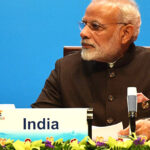
Inside the walls of the United Nations compound in Afghanistan over the past few weeks, diplomats scurried about looking for some semblance of security and operational control, for after all, the Taliban were on the doorstep of Kabul and later, president Ashraf Ghani fled, leaving a slew of questions in his wake. Afghans and international staff sent hundreds of exchanges to senior UN officials in Kabul, frightened by the prospect of Taliban rule and afraid for the security of themselves and their families. The UN has advised its staff to stand down and avoid going to the airport, while many are still waiting on the issuance of passports and the opportunity to obtain a visa to the United States, Canada, or neighbouring countries.
As the Taliban are now going house by house, searching for documentation on potential collaborators, security officials advised residents to soak paper documents in a strong cleaning solution and pour the buckets containing them out into open sewers or septic tanks. While the UN and the international community have a moral obligation to protect the hundreds of thousands of Afghans seeking protection from possible exploitation and repression, it is also important to rethink the state of sustainable development in Afghanistan in light of the Taliban’s reclamation of power. Without the US-led international force to train local security personnel and secure peace and stability in the war-torn country, development assistance, especially that premised on the philosophy that comprehensive and sustainable development is one characterised by inclusivity, is dead in the water.

The UN largely failed to anticipate the possibility of the Taliban assuming control, even as violence soared in the weeks and months prior to the fall of Kabul. Violence has increased dramatically since the onset of the Taliban’s advance, as evidenced by more than 1,000 recent civilian casualties near the provincial capitals of Kandahar, Herat and Lashkar Gah. As recently as April, the UN was overly optimistic about economic and development progress in Afghanistan, outlining three economic scenarios in a recent report — all contingent upon a structured political power-sharing agreement between the former Afghan government and the insurgent Taliban. While they acknowledged that development plans would continue to face challenges after a peace agreement, none of the economic forecasts was based upon the possibility of Taliban resurgence, despite overwhelming evidence.
This leaves many questions as to why the UN did not take the former US administration’s deadline for withdrawal of troops seriously, a deadline reaffirmed by the Biden administration. What is more, why wasn’t there more communication with the Biden administration to coordinate the withdrawal? This disconnect means the likely human rights abuses against women and moderates that are likely to occur under the “Taliban 2.0” will lay at the feet of the UN as well.
Last year’s donor conferences for Afghanistan should have been a wake-up call for development practitioners. While national revenues grew and reached as much as 14% of GDP, the government was heavily reliant on international financial support. The Geneva conference in November made it perfectly clear that Western donors had nearly run out of patience in Afghanistan. The US last year relied on the intra-Afghan peace process to draw down its engagement in Afghanistan and hold on to its pledge to reduce the remaining military forces. The withdrawal of US forces not only left Afghanistan vulnerable to influence by the Taliban but influenced donor decisions accordingly.
Germany, for example, pledged US$511 million (17 billion baht) for this year but warned that progress was needed to wrap up Afghanistan’s 20-year war. The European Union pledged $1.43 billion, but reiterated that “any attempt to restore an Islamic emirate would have an impact on our political and financial engagement”. Between November and last month, there was no indication that the government had accounted for the complete failure of the “Afghan-led” peace process.
Sustainable development in Afghanistan has always been contingent upon security. As many have quoted in one form or another, you cannot have development, human rights or peace without security. Afghanistan’s development priorities for decades were centred around the creation of a security apparatus, namely the Afghan National Army and Afghan National Police. Many have suggested that this has been the folly of the Americans, that it could build a professional security force of hundreds of thousands from nothing. Salaries for the police were long administered by the United Nations Development Programme through the Law and Order Trust Fund of Afghanistan (LOTFA). The collapse of the national government, and rampant corruption, which doomed both the army and the police, also puts into doubt the feasibility of LOTFA. Many have questioned the actual headcount of security forces, with it allegedly being far lower than what was registered. When the Taliban recently advanced on major cities across Afghanistan, many were simply paid off.
At the same time, the Taliban need some of the machinery of government working — even offering “general amnesty” to government employees to return to work — particularly if they are interested in being perceived as evolving into “Taliban 2.0”, where pledges were recently made to create a more inclusive government than the one it ran from 1996 to 2001. Perceptions of an evolving Taliban aren’t unanimous and if they are to renege on their word, the current lack of local legitimacy will colour their rule. While inside Kabul the Taliban have kept a cleaner, media-friendly image, outside of the capital, reports indicate that they have reimposed oppressive laws — particularly against women and the media.
In the near term, isolation and distance might be the best course of action, at least until the UN and other international actors can determine what factions of the Taliban control various line ministries and departments. Many UN agencies will operate remotely, as they have in other failed states until a new normal emerges and security — the most vital element in Afghanistan’s national development — returns.
The UN should also pay careful attention to the new geopolitical realities that have emerged with the Taliban 2.0 regime. We are likely to see new actors in Afghanistan that prioritise sovereignty and that have different definitions of human rights and development become more proactive, such as China. The UN will need to assess how China will engage with the Taliban and China will sacrifice Afghan development for border security and anti-terrorism, China’s top priorities for engagement with the Taliban.
This speaks to a new reality facing the UN going forward. How does the UN contribute to championing human rights and inclusivity in development initiatives when China and others are working hard to shape an ideological environment conducive to their rise and to counter to the Western values that embody the UN’s commitment to development.
Co-authored with Dr. Stephen Nagy, a senior associate professor at the International Christian University in Tokyo and visiting fellow at the Japan Institute for International Affairs.






